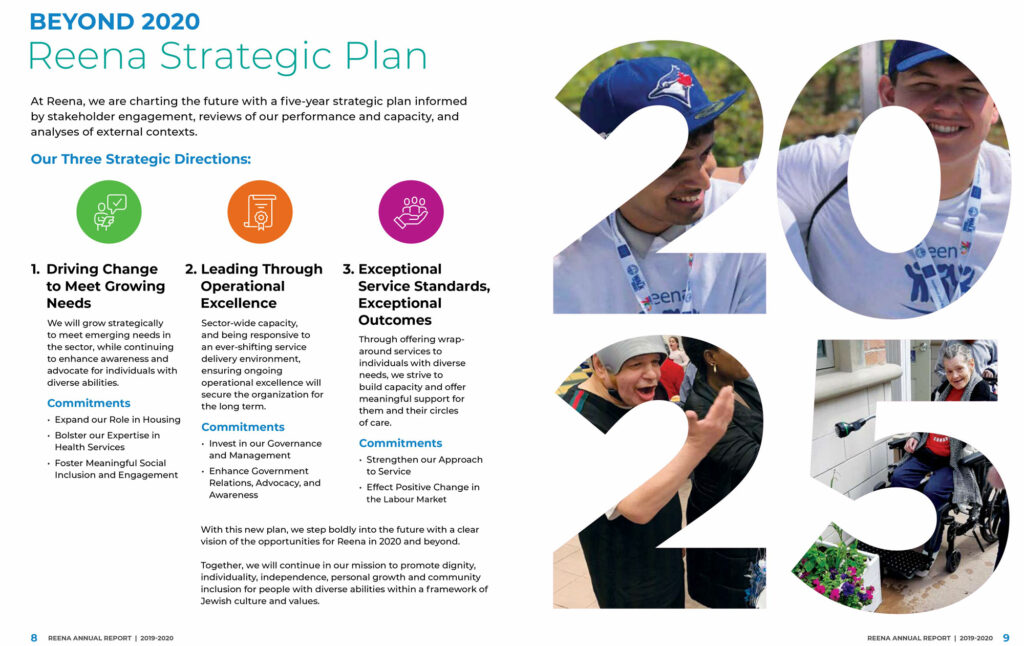Call to Action
Help Us Drive Change
Your support helps us fund transformational housing projects and vital programs including Day, Respite and Employment.

Reena is focused on ensuring that it remains a values-based, person-centred, and accountable organization. At the core of these strategic directions are our ongoing commitment to the individuals we serve and their families, our valued staff, volunteers, donors, funders, partners, and the broader community.
Our community counts on us to strive to meet the ever-expanding need for supports and services for individuals with diverse abilities. We are committed to continuing to be a leader and trusted partner in our community and in the broader sector. Our strategic directions will drive us forward as we work towards fulfilling Reena’s mission.
To achieve our strategic directions, our work will be supported by three guiding principles. In every way possible, at the core of each of our strategic directions we will ensure:
Inclusion: We will keep the spirit of social, cultural, and community inclusion at the core of our approach.
Collaborative Approach: We will seek to collaborate broadly, diversify our networks, and leverage partnerships to drive our strategy forward and achieve mutual aims.
Strong Communications and Knowledge Mobilization: We will focus on proactive engagement and effective internal and external communication practices to inform, engage, and empower.

Your support helps us fund transformational housing projects and vital programs including Day, Respite and Employment.
